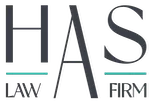- within Finance and Banking, Technology, Government and Public Sector topic(s)
EXECUTIVE SUMMARY
The DIFC and ADGM are both equipped to deal with lower value claims using their own respective Small Claims Tribunal/Court to offer a time efficient and cost-effective way for resolution of disputes.
Here we consider various key questions relating to the DIFC Small Claims Tribunal and ADGM Small Claims Court, including: (i) what they are; (ii) why use them; (iii) when you can use them and (iv) how to use them (with our assistance, if required) to meet your commercial objectives.
WHAT ARE THEY?
DIFC Small Claims Tribunal – Established in 2007, the DIFC Small Claims Tribunal (SCT) is an independent English language common law judiciary that is based in the Dubai International Financial Centre free zone which has its own procedural rules (under Part 53 of the Rules of the Dubai Courts) with jurisdiction to deal with civil and commercial disputes (not criminal cases).
ADGM Small Claims Court – Decision No. 20 of 2020 was introduced as a fast-track mechanism to allow individuals or companies to file lower value civil or commercial claims (not criminal cases), to see a quick resolution of their disputes and avoid costly and time-consuming court proceedings.
WHY USE THEM?
The reasons to use the DIFC Small Claims Tribunal or ADGM Small Claims Court are as follows:
- To reach a swift resolution of your dispute while minimising cost expenditure and delay;
- Where you have a breach of contract case involving any of the following areas; (a) banking; (b) employment, or (c) commercial/debt recovery matters.
Fundamentally, the laws offer certainty, flexibility and efficiency for court users and are user friendly which offer access to justice.
WHEN CAN YOU USE THEM?
The Small Claims Tribunal/Court can be used in the following circumstances:
In the DIFC Small Claims Tribunal: to hear claims within the jurisdiction of the DIFC Courts:
- If the amount or the value of the subject matter of the claim is less than AED 500,000; or
- If the matter relates to an employment or former employment of a party and all parties to the claim elect in writing for it to be heard by the SCT; or
- If the claim is not employment related, the amount or value of the claim does not exceed AED 1 million and all parties confirm in writing for it to be heard by the SCT; or
- Such other claims as may be ordered or directed by the Chief Justice (see Part 53.2 of the Rules of the DIFC Courts for full details).
In the Abu Dhabi Small Claims Court: if the claim meets the following criteria:
- Where the claim value is less than USD 100,000 or less; or
- An employment claim where both parties agree in writing that it
is to be dealt with as a small claim
(see ADGM Courts Practice Direction 3 – Small Claims for full details).
HOW TO USE THEM?
The DIFC and Abu Dhabi Small Claims procedure is relatively similar in that the party wishing to bring a claim must file a Claim Form with the Small Claims Division of the Court, and the claim will commence once the Court issues the claim. The Claimant must then arrange to serve the Claim Form on the person to whom the claim is brought against (the Defendant). The Defendant must then either file an Acknowledgment of Service (within 14 days after service of the Claim Form), or an Admission, Defence or Counterclaim (within the timeframe stipulated). The Claimant may then file and serve a Reply to the Defence or Defence to Counterclaim, and the Court will then set a timetable for the rest of the proceedings.
There are various other options open to the Claimant, for example:
- Default Judgment – If the Defendant does not comply with the procedural rules (for example, a Defendant has failed to file and serve an Acknowledgment of Service or has filed and served an Acknowledgment of Service but has failed to file and serve a Defence), it may make a request for Default Judgment;
- Disputing the Jurisdiction of the Courts – in circumstances where there are grounds to do so, a Defendant is at liberty to make an application to dispute the jurisdiction of the Court's within 28 days from being served with the Claim Form.
The content of this article is intended to provide a general guide to the subject matter. Specialist advice should be sought about your specific circumstances.
[View Source]

